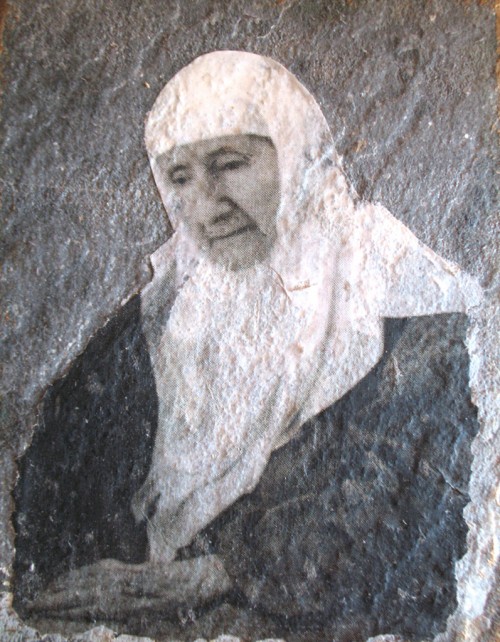Ας δούμε
όμως τι λέει ο άγιος Ιωάννης ο Χρυσόστομος και για τις υποχρεώσεις των
συζύγων. Απευθύνει τον λόγο κυρίως στους άνδρες. Ίσως επειδή ο ανδρικός
εγωϊσμός δύσκολα δαμάζεται και πολλές φορές συμπεριφέρονται με
σκληρότητα.
Ο Χρυσόστομος καταδικάζει
την εξάσκηση σωματικής βίας και την κακοποίηση της γυναίκας από τον
άνδρα, φαινόμενο που όσο και αν σας φαίνεται παράξενο, συμβαίνει και
σήμερα. Αντιθέτως απαιτεί από τον άνδρα θυσιαστικό φρόνημα, μεγάλη συγχωρητικότητα
και όχι απειλές και εκφοβισμό. Με την επιείκεια και την ημερότητα θα
εξασφαλίζεται η βαθιά ειρήνη της οικογενείας και θα απομακρύνεται η
δυσαρέσκεια και θα αυξάνεται η αφοσίωση του ενός συζύγου προς τον άλλο.
Τονίζει ο Χρυσόστομος: «Δεν υπάρχει τίποτε, τίποτε πολυτιμότερο από το
να αγαπιέται κανείς τόσο πολύ από την γυναίκα του και να την αγαπάει».
Ο άγιος
Χρυσόστομος αναφέρεται και σε ένα συνεκτικό στοιχείο, θεμέλιο της
συζυγίας, την επικοινωνία των συζύγων. Είναι η καθημερινή αλληλεπίδραση
των δύο συζύγων. Η επικοινωνία γίνεται με λόγια η χωρίς λόγια. Είναι
θετική η αρνητική.
Το
σπουδαιότερο στοιχείο της επικοινωνίας είναι η συζήτηση. Ετυμολογικά
(συν + ζητώ), δηλαδή από κοινού αναζητώ του τι πρέπει να γίνεται στα
θέματα που αφορούν την κοινή ζωή και την οικογένεια.
Η συζήτηση
πρέπει να γίνεται με οικειότητα, αλληλοσεβασμό, σε κλίμα ελευθερίας,
ισοτιμίας και αγάπης. Τότε μπορεί να βρεθεί η λύση σε περίπτωση
διαφωνίας η σύγκρουσης. «Γιατί τίποτε δεν είναι πικρότερο από την μάχη
που γίνεται από τον άνδρα ενάντια στην γυναίκα. Γιατί είναι πικρές,
πραγματικά, οι μάχες που γίνονται ανάμεσα σε πρόσωπα που αγαπιούνται,
και δείχνουν ότι όταν κανείς διχάζεται με το ίδιο του το μέλος, όπως
λέγεται, αυτό πρέπει να προκαλείται από μεγάλη πικρία.
Το μέρος, λοιπόν, των ανδρών είναι να αγαπούν και των γυναικών να υποχωρούν. Εάν λοιπόν καθένας συνεισφέρει το δικό του μέρος, όλα θα είναι στερεά. Και η γυναίκα γίνεται φιλική και αγαπιέται».







 Όλοι επιθυμούν τήν ειρήνη, μά δέν ξέρουν πώς νά τήν αποκτήσουν. Ο Μέγας Παΐσιος κυριεύθηκε από θυμό καί παρακάλεσε τόν Κύριο νά τόν ελευθερώσει από αυτό τό πάθος. Ο Κύριος εμφανίστηκε σ' αυτόν καί τού είπε: «Παΐσιε, άν θέλεις νά μήν οργίζεσαι, μήν επιθυμείς τίποτε, μή κρίνεις καί μή μισήσεις κανένα καί θά έχεις τήν ειρήνη». Έτσι κάθε άνθρωπος πού κάνει τό θέλημά του νά υποχωρεί έναντι τού Θεού καί τών ανθρώπων, θά είναι πάντα ειρηνικός στήν ψυχή. Όποιος όμως αγαπά νά κάνει τό θέλημά του, αυτός δέν θάχει ειρήνη.
Όλοι επιθυμούν τήν ειρήνη, μά δέν ξέρουν πώς νά τήν αποκτήσουν. Ο Μέγας Παΐσιος κυριεύθηκε από θυμό καί παρακάλεσε τόν Κύριο νά τόν ελευθερώσει από αυτό τό πάθος. Ο Κύριος εμφανίστηκε σ' αυτόν καί τού είπε: «Παΐσιε, άν θέλεις νά μήν οργίζεσαι, μήν επιθυμείς τίποτε, μή κρίνεις καί μή μισήσεις κανένα καί θά έχεις τήν ειρήνη». Έτσι κάθε άνθρωπος πού κάνει τό θέλημά του νά υποχωρεί έναντι τού Θεού καί τών ανθρώπων, θά είναι πάντα ειρηνικός στήν ψυχή. Όποιος όμως αγαπά νά κάνει τό θέλημά του, αυτός δέν θάχει ειρήνη.






